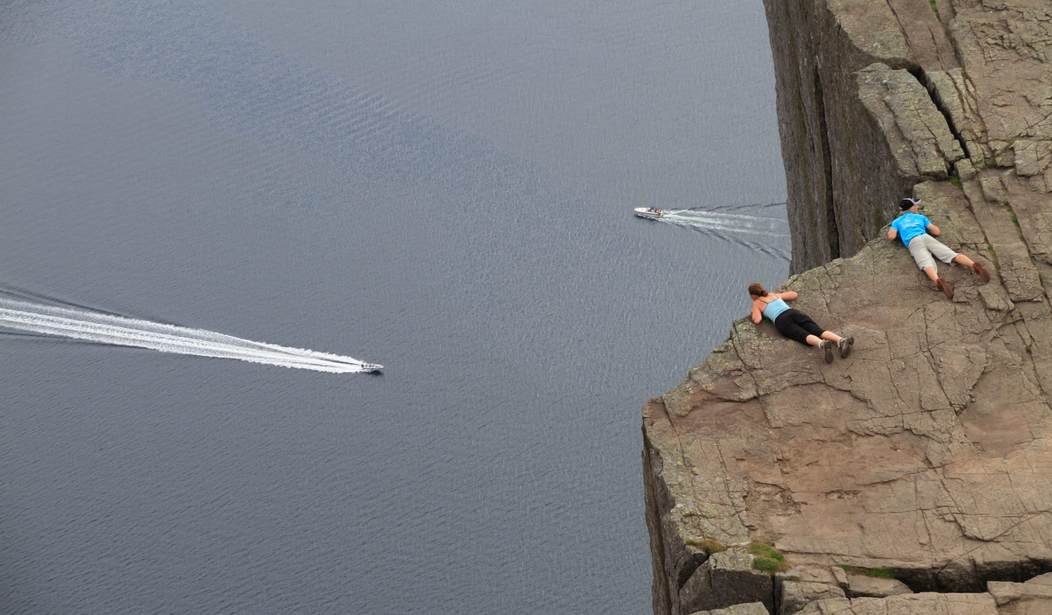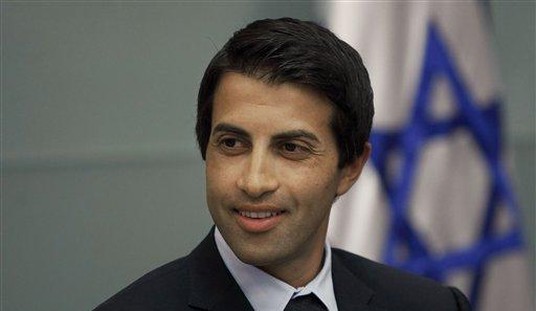Adam Smith once observed that “there’s a lot of ruin in a nation”. A lot, but not an infinite amount. Venezuela proves that given enough stupidity it is possible to run through even the biggest design margin. “From the 1950s to the early 1980s the Venezuelan economy was the strongest and most prosperous in South America. The continuous growth during that period attracted many immigrants.” That prosperity was built on an extraordinary resource base. Venezuela was sitting on a bonanza of natural riches in which it was only necessary to reach out and harvest wealth.
Venezuela is a major producer of petroleum products, which remain the keystone of the Venezuelan economy. … A range of other natural resources, including iron ore, coal, bauxite, gold, nickel, and diamond … Venezuela utilizes vast hydropower resources to supply power to the nation’s industries.
Unfortunately riches on that scale attract what economists call the curse of plenty, after the observable fact that “countries with an abundance of natural resources, specifically non-renewable resources like minerals and fuels, tend to have less economic growth, less democracy, and worse development outcomes than countries with fewer natural resources.”
The problem is that easy money attracts the wrong kind of leaders and incentivizes the wrong kind of public behavior. “Countries that rely on natural resource exports may tend to neglect education because they see no immediate need for it. Resource-poor economies like Singapore, Taiwan or South Korea, by contrast, spent enormous efforts on education.” The more reliant a country on found wealth the more vulnerable it is to the siren song of revolutionary firebrands and apocalyptic ideologies.
The resource curse duly gave Venezuela the expected succession of corrupt and incompetent governments. But when the Venezuelans sought relief from the ordinarily corrupt governments in a Marxist named Hugo Chavez, they found it was possible to go from bad to worse. A Marxist government, disastrous in itself, was supercharged by the culture of corruption and the availability of ready money. The joint effect was disaster.
Hugo Chavez and his successor Nicolas Maduro, with money to back them, were able to embark on a lavish program of insanity. Chavez controlled prices, showered Cuba with aid and borrowed billions from China while simultaneously destroying the ability of businesses to operate. He believed there was an eternal stash on which he could lay his hands out to fund his programs. The needle of ruin exceeded “a lot” and went on to indicate “you wouldn’t believe”. When the smoke cleared there were shortages of everything and Venezuela’s finances were on the point of collapse.
To Chavez’s many dubious achievements Maduro added more. Today there is only enough power to work 2 days a week. For the rest of the week, people are confined to their unlighted homes when they are not wandering the streets in search of food to buy. “We can’t go on living like this,” a resident told CNN.
The food in the fridge is spoiling. The microwave oven sits unused. The television is dark and the stereo system silent. It’s sweaty and uncomfortable inside, thanks to government-imposed electricity blackouts meant to deal with chronic power shortages across the country.
Even getting running water is a problem.
There isn’t even enough money to print debased money. Venezuela’s fantastic inflation, slated to run between 600 -700 % this year requires bales of currency. “Venezuela is scrambling to print new bills fast enough to keep up with the torrid pace of price increases … and with hard currency reserves sinking to critically low levels, the central bank is doling out payments so slowly to foreign providers that they are foregoing further business. Venezuela, in other words, is now so broke that it may not have enough money to pay for its money.”
The first signs of the currency shortage date back to 2014 when the government began increasing shipments of bank notes as wallet-busting wads of cash were already needed for simple transactions. Venezuelans spend hours waiting in line for consumer staples, lining up first at banks and cash machines, often carrying the loot in backpacks and gym bags …
the central bank tapped the U.K.’s De La Rue, France’s Oberthur Fiduciaire and Germany’s Giesecke & Devrient to bring in some 2.6 billion notes … Before the delivery was completed, the bank approached the companies directly for more. … The cash arrived in dozens of 747 jets and chartered planes. Under cover of security forces and snipers, it was transferred to armored caravans where it was spirited to the central bank in dead of night. While the cash was still arriving — at times, multiple planeloads a day — authorities set their sights on the year ahead. …
“Initially, your eyes grow as big as dish plates,” said one person familiar with matter. “An order big enough to fill your factory for a year, but do you want to completely expose yourself to a country as risky as Venezuela?”
Venezuela’s power shortage has crippled its capacity to pump oil. “Analysts believe chronic power shortages in the country could soon affect the oil sector, with output declining 100,000-200,000 barrels per day this year.” The terrible failures are feeding into each like a kind of political multiple organ failure, with the decline in one system hampering the recovery of the other.
The prognosis is probably terminal. It’s telling that Maduro has blamed God for the “low water levels at Venezuela’s giant Guri dam”. The socialist government is in the classic stages of death. After years of denial it is now consumed by anger. It is now bargaining with — someone — over its fate. Such is their predicament that “the slightest amount of precipitation around the Guri can elicit effusive praise to God Almighty” from leftist officialdom. The Washington Post reports that there are no socialists in foxholes.
“Comrades, today it rained long and hard over the Guri,” Electricity Minister Luis Motta Dominguez tweeted after a rare downpour earlier this month. “Glory to God. We will overcome!”
But the rain isn’t falling fast enough, or falling much at all, this year, one of the worst El Niño droughts on record.
The Venezuelan tragedy reminds us that because collapse happens “gradually then all of a sudden” a slow decline can mask the approach of the discontinuity. Suddenly, says Victor Davis Hanson, American public policy has forgotten all the lessons of World War 2. One fine day Saudi Arabia woke up broke. OPEC has unexpectedly become an association of beggars. And China turns out to be sitting on a financial bubble. By some poorly understood process the invisible line dividing the troublesome and unendurable, the recoverable and irrecoverable is crossed without anyone noticing. It appears to happen suddenly.
But as author Robert Bidinotto notes, there is nothing sudden about drifting over the falls. “As I witness the slow, gradual, resigned acceptance within the Republican Party of Donald Trump (and within the Democrat Party of criminal Hillary Clinton and socialist Bernie Sanders) by more and more people — people who, during a more civilized moment just months ago, would NEVER have tolerated the likes of such creatures — I am reminded how a culture becomes corrupted, then lost.” He thinks America may have gone over the edge and maybe he’s right. Organizations like the Clinton Foundation that were once shocking were normalized until a desensitized public accepted it as the template for the Obama Foundation.
It can’t happen in the West? Well that’s what they said about wealthy Venezuela.
The lights didn’t go out in Caracas all at once. The wiring was stolen bit by bit; the turbines had been neglected year by year; the engineers had departed plane by plane until Earth Day came down like a shroud and without apparent end. Rioting and looting is now reported to be spreading as only 15 days of food are said to remain.
The breakdown of a great Third World city is a study by itself. It is called the ‘Fragile City’ effect and worries some military analysts who feel they may have to deal with it soon. Last year I began a novel where one of whose principal subthemes was the effect that an accidental war with China might have on the the greatest concentration per square mile of people on earth, metropolitan Manila. I stopped the project due to other commitments but enough of Chapter 3 was written in very rough draft to share it here.
Follow Wretchard on Twitter.
Recently purchased by readers:
The Life-Changing Magic of Tidying Up: The Japanese Art of Decluttering and Organizing, This best-selling guide to decluttering your home from Japanese cleaning consultant Marie Kondo takes readers step-by-step through her revolutionary KonMari Method for simplifying, organizing, and storing, which promises that if you properly simplify and organize your home once, you’ll never have to do it again.
100 Deadly Skills: The SEAL Operative’s Guide to Eluding Pursuers, Evading Capture, and Surviving Any Dangerous Situation – including tips useful for handling ordinary crime such as car thefts, etc.
UnCivilization: Urban Geopolitics in a Time of Chaos: When do civilizations begin … and end? And how? Is this what we are witnessing as the 21st Century matures? And as a totally new global architecture presents us with an unrecognizable world? What does it all mean for the stability of nations-states, the prosperity of societies, the way we live and wage wars over the coming decades?
Government Gone Wild: How D.C. Politicians Are Taking You for a Ride — and What You Can Do About It
Recommended:
The Hunter Killers: The Extraordinary Story of the First Wild Weasels, the Band of Maverick Aviators Who Flew the Most Dangerous Missions of the Vietnam War
Did you know that you can purchase some of these books and pamphlets by Richard Fernandez and share them with your friends? They will receive a link in their email and it will automatically give them access to a Kindle reader on their smartphone, computer or even as a web-readable document.
The War of the Words, Understanding the crisis of the early 21st century in terms of information corruption in the financial, security and political spheres
Rebranding Christianity, or why the truth shall make you free
The Three Conjectures, reflections on terrorism and the nuclear age
Storming the Castle, why government should get small
No Way In at Amazon Kindle. Fiction. A flight into peril, flashbacks to underground action.
Storm Over the South China Sea, how China is restarting history in the Pacific
Tip Jar or Subscribe or Unsubscribe to the Belmont Club










Join the conversation as a VIP Member